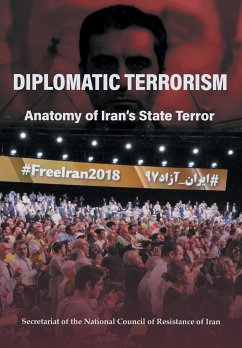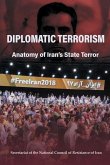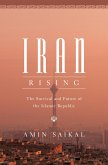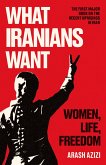Assadollah Assadi, became the first-ever serving Iranian diplomat to be detained, investigated, tried, convicted, and imprisoned, after he plotted to blow up thousands of participants in the Iranian Resistance's annual Free Iran World Summit in Villepinte, France, where Maryam Rajavi, the President-elect of the opposition National Council of Resistance of Iran was speaking, along with hundreds of political dignitaries from across the globe. In late February 2022, authorities in Iran detained a Belgian aid worker, and this time, it was Belgium's turn to be blackmailed with yet another hostage taking by a regime that for over 40 years has taken advantage of Western appeasement to further its illegal and murderous ways. Hostages are the Iranian regime's leverage to set Assadi free and return him to Iran, from where he had set out in late June of 2018 with a highly sophisticated and lethal explosive device in his diplomatic pouch. Assadi and his paymasters in Iranian intelligence didn't think twice about moving the bomb to Vienna on a commercial passenger jet. The fact that Assadi was under close surveillance and caught red-handed delivering the bomb to his accomplices in a Luxembourg Pizza Hut does not bother the Iranian regime. To them Assadi is a hero diplomat carrying out his "duties" albeit in direct contravention of the Vienna Convention on diplomatic relations and international law. This case highlights the close cooperation between the Ministry of Foreign Affairs (MFA) and Ministry of Intelligence and Security (MOIS) in terrorist activities in Europe. After the February hostage-taking of the Belgium national in Iran, the regime clearly communicated back-channel messages to Belgium, and the two parties secretly signed a prisoner-exchange treaty on March 11. The first public unveiling of this "pact with the devil"[i] came when Belgium's justice minister, Vincent Van Quickenborne, urgently presented a bill to the Belgian Parliament on June 29, which sought ratification for the treaty with Iran by sandwiching it between two other prisoner exchange treaties. He would later defend the unsavory bill by meekly offering, "Iran is a rogue state, but we don't choose to whom we talk." He emphasized that freeing the Belgian was "our priority."[ii] If Prime Minister Alexander De Croo and his justice minister had had their way, the bill would have been enacted four business days later. But members of Parliament, including some in the government coalition, strongly criticized the treaty. Simultaneously, the Iranian Resistance, condemned the possibility of releasing Assadi back to Iran and called for action to prevent it. This call galvanized opposition to the shameful bill among Iranians, in the Belgium Parliament, in the press, and in the court of public opinion. This campaign led to the debate on the treaty that continued for over two more weeks. The treaty's ratification was expected by July 4, but it was ultimately ratified over two weeks later, early on July 21. The NCRI, its president-elect, and a group of potential victims of Assadi's terrorist plot, however, have launched a legal challenge to the government's bid to free a convicted terrorist. That challenge has yet to be heard and settled. In the meantime, a court injunction is in place barring Assadi's release.
Hinweis: Dieser Artikel kann nur an eine deutsche Lieferadresse ausgeliefert werden.
Hinweis: Dieser Artikel kann nur an eine deutsche Lieferadresse ausgeliefert werden.








